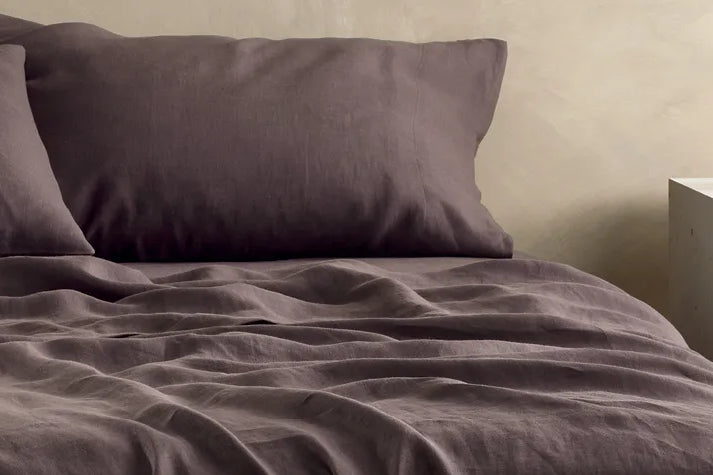
Relax and unwind before bed
By dimming the lighting around your home a few hours before bedtime, it will be easier to fall asleep. Instead of harsh, overhead lighting, instead opt for a few small lamps, such as our Arwen, Chester or Conrad lamps which are not only effective, but look great.
So you’ve gotten into bed after a long day, gotten comfortable…but then you can’t manage to fall asleep. Does this happen to you regularly?
This is very common and will happen to almost everyone. You may be tired, but you’re not relaxed enough to fall asleep just yet, so your mind may be ticking along and not able to stop.
From limiting your screen time, having proper lighting, and prioritising temperature control, read on for some ideas that you can practise daily that will help you wind down and prepare you for the perfect night’s sleep.
Play music/relaxing sounds:
Music can ultimately help set your mood and can often be a clear giveaway of how you’re feeling, e.g., playing upbeat music when you’re happy, or playing slow ballads when you’re feeling down.
The same goes when you want to relax; playing soft, slow, relaxing music will help to soothe your mind and allow you to focus on the relaxing tones.
Try playing some relaxing tunes before you hop into bed, or even have it on softly on a timer as you fall asleep. If music isn’t doing it for you, try playing some brown noise – a soothing and lower-pitched sound, like white noise. The constant sound will help drown out any external noise and help you fall asleep faster!
Limit screen time:
We’ve all heard this one – for the best sleep possible, you should try and avoid using electronics such as your phone and TV a few hours before bed. But do you know why?
The LED light in your electronics can actually stunt melatonin, the necessary chemical in our bodies that allows us to fall asleep. So if you must check your phone or watch another episode of your favourite show (we’ve all been there), try and do so at least 1 hour before you sleep.
Instead, get comfortable on the couch or wherever you like and read a book, try to complete a mind puzzle, or spend time with your family or pets.
Drink a warm cup of tea:
Another obvious, yet highly effective one. Drinking a warm cup of herbal tea right before bed, such as chamomile, peppermint, or ginger flavoured, is a great sleep aid as they have natural, calming properties.
If you’re not really into the flavour, you can pop a dash of honey or sugar in to make it a touch sweeter.
Avoid anything caffeinated, such as coffee, soft drinks, and alcohol, as they can often have the opposite effect, and you might find yourself tossing and turning when it comes time to sleep.
Have adequate lighting:
Your body clock can pick up on cues to help decide what time it is, the majority coming from light and darkness. So if it’s still light when it’s time to sleep, your body may not be as tired.
This is where dim lighting comes into play – by dimming the lighting around your home a few hours before bedtime, it will be easier to fall asleep.
Instead of harsh, overhead lighting, instead opt for a few small lamps, such as our Arwen, Chester or Conrad lamps which are not only effective, but look great.
Practise temperature control/adequate bedding:
Being too hot or too cold can disrupt sleep very easily, and it can also be why you’re not falling asleep to begin with.
By practising temperature control before you go to bed, such as having a heater/air conditioner on, this will help you remain comfortable and content and hopefully sleepy.
Building your bed correctly to suit your needs can also help significantly. If you’re one that may get a bit too hot or a bit too cold when sleeping, you may need to invest in quality bedding, such as our Thermal Balancing Topper and Thermal Balancing Quilt, which aim to regulate your temperature while you’re sleeping.
Having additional support such as our range of Underlays, Mattress & Pillow Protectors can also help to make you extra cosy and comfortable and more likely to fall asleep faster.



